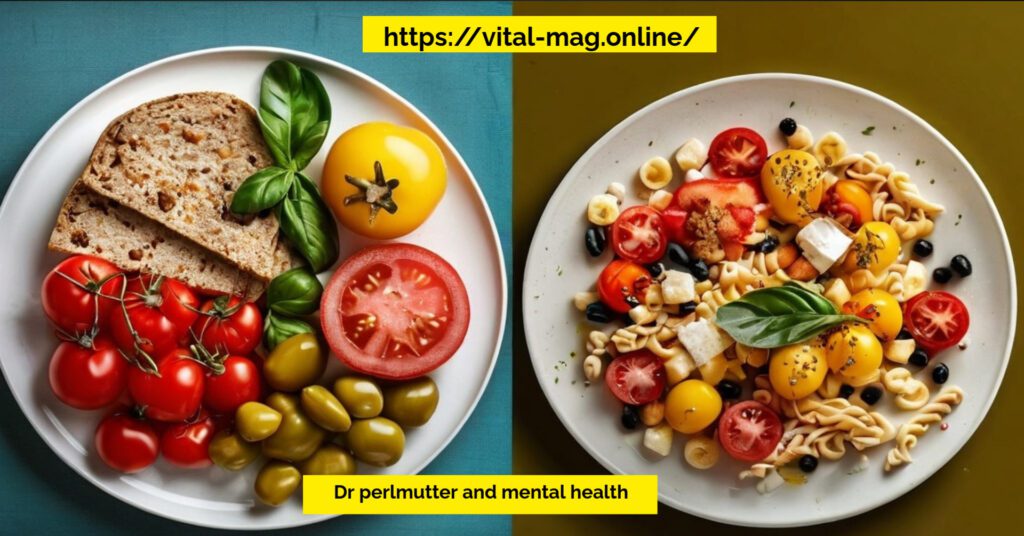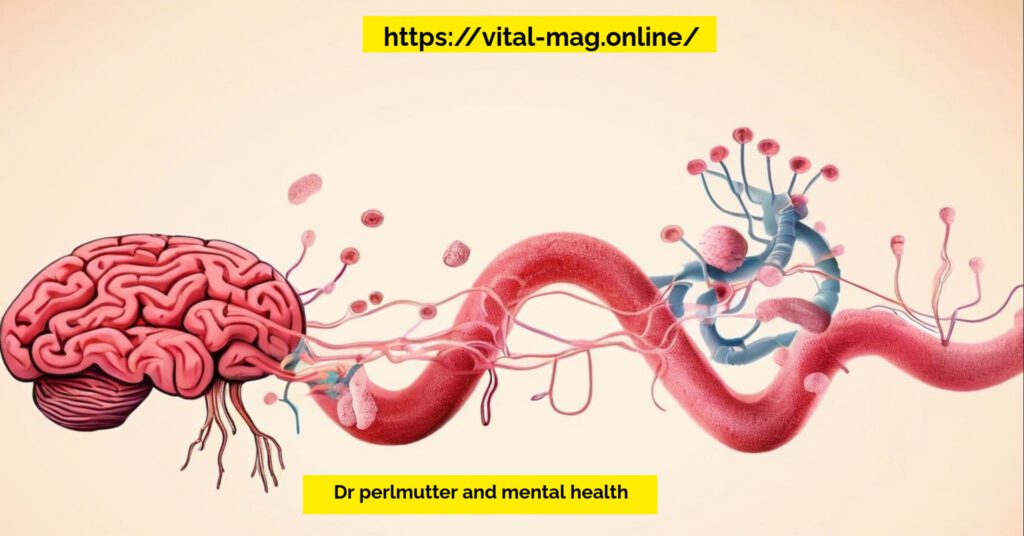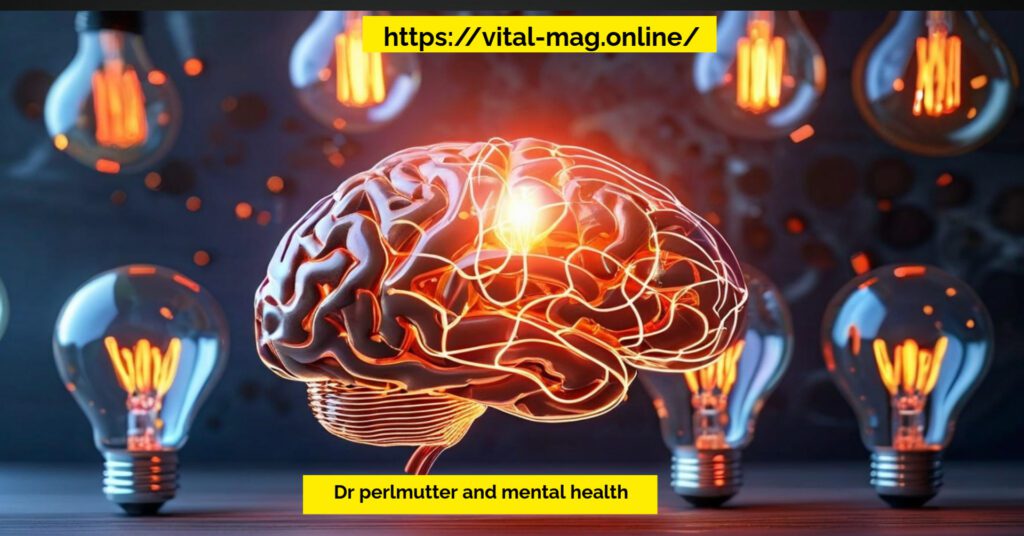Introduction
Hey there! Let’s talk about something that hits home for many of us: mental health. You might not realize it, but what’s on my plate can really impact how I feel, especially when it comes to anxiety and depression. Recent studies show a strong link between specific diets—like the Mediterranean diet, low-carb, and anti-inflammatory approaches—and our mental well-being. Dr. David Perlmutter has done some amazing work in this field, diving deep into how our food choices affect our brains and overall mental fitness. So, grab a snack, and let’s break it down together!
Key Points

Mediterranean Diet and Mental Health
- I love the Mediterranean diet! It’s all about whole foods—think fruits, veggies, fish, and whole grains. This low-inflammatory diet can help reduce anxiety and depression.
- Research shows that people who follow this diet often report feeling much better.
Ketogenic and Low-Carb Diets
- If you’ve heard about keto or low-carb diets, you might know they’re great for shedding pounds. But guess what? They also help improve neurological health! I’ve seen folks experience mood stabilization and clearer thinking when they switch to these diets.
- There’s growing evidence linking these diets to anxiety relief, which is pretty cool!
Mindfulness and Diet
- Let’s chat about mindful eating. I find that taking my time to enjoy food really helps me reduce stress. When I focus on each bite, I feel more connected to my meals and less likely to snack mindlessly.
Main Content
Introduction to the Link Between Nutrition and Mental Health
Did you know our diets influence our brains? Here’s how:
- Neurotransmitter Production: What I eat affects my brain’s neurotransmitter levels, which are crucial for mood regulation.
- Gut-Brain Connection: My gut health is closely tied to my mental state. A happy gut leads to a happier mind!

Anti-inflammatory Diets and Mental Well-being
Anti-inflammatory diets can make a real difference in how I feel. The Mediterranean diet is a standout here.
- SMILES Trial: This research showed that people improved their mood just by changing their diet.
- Key Foods: Foods rich in Omega-3s, along with plenty of fruits and veggies, can boost my mental wellness!
| Food Type | Benefits for Mental Health |
| Omega-3 Rich Foods | Reduce depression and anxiety |
| Fruits | High in antioxidants, promote brain health |
| Leafy Greens | Packed with nutrients for mood support |
Impact of High-Carb and Processed Foods on Anxiety
I’ve learned that high-carb and processed foods might be making my anxiety worse.
- Sugar Spikes: Those quick sugar highs lead to mood swings and brain fog for me.
- Processed Foods: They often lack the nutrients I need and can contribute to anxiety symptoms.
The Ketogenic Diet and Mental Clarity
The ketogenic diet has been a game changer for some! Here’s why:
- Ketosis: When my body enters this state, it uses fat for energy, which many find enhances brain function.
- Research Success: Studies show folks on keto often report lower anxiety and clearer thinking.
The Role of Gluten in Mental Health Disorders
I’ve seen gluten become a hot topic in mental health discussions.
- Dr. Perlmutter’s Work: His book “Grain Brain” talks about how gluten can worsen conditions like depression and anxiety.
- Case Studies: Many people have felt better after ditching gluten from their diets.
The Gut-Brain Axis and Mental Health
Let’s not forget about our gut! It’s super important for our mental state.
- Probiotics and Prebiotics: These can improve brain health and mood. I like to think of them as my brain’s little helpers.
- Gut Health and Mood Disorders: Poor gut health is often linked to issues like depression and anxiety.

| Gut Health Component | Impact on Mental Health |
| Probiotics | Support brain health |
| Prebiotics | Help maintain a healthy gut microbiome |
Mindful Eating as a Tool for Mental Wellness
Mindfulness is not just for meditation; it applies to what I eat, too!
- Reduce Emotional Eating: By being present during meals, I can lessen the urge to eat out of stress.
- Mindful Meal Prep: Preparing meals with intention enhances my connection to food.
Supplementation for Mental Health
Sometimes, I need a little extra boost from supplements.
- Omega-3, Magnesium, Vitamin D: These are essential for mental wellness and help combat deficiencies.
- Finding the Right Supplements: I always check with my healthcare provider to figure out what’s best for me.
Exercise, Nutrition, and Mental Health
Let’s not overlook the power of moving our bodies! When I combine exercise with good nutrition, I feel so much better.
- Holistic Approach: A lifestyle that includes physical activity and healthy eating leads to better mental clarity and mood.
- Healthy Lifestyle Changes: Making consistent, small changes can lead to big improvements in my mental resilience.
Case Studies and Research Evidence
Research backs it all up! Studies show a direct impact of diet on mental health.
- SMILES and HELFIMED Trials: These have shown how diet therapy can lead to significant mental health improvement.
- Real-World Applications: More professionals are starting to incorporate dietary advice into mental health treatment plans.
FAQs
How does diet affect anxiety?
I’ve noticed that diet can regulate neurotransmitter levels, helping reduce anxiety by balancing mood and energy. Anti-inflammatory diets and low-carb approaches often help stabilize symptoms for me.
What foods help reduce depression?
Mediterranean-style diets, rich in fruits, vegetables, fish, and whole grains, have helped me lower depression symptoms. There’s solid evidence supporting the role of Omega-3s and antioxidants.
Conclusion
So, here’s the scoop: what I eat has a huge impact on my mental health. Focusing on a low-inflammatory diet helps me ease anxiety and depression while enhancing my overall mental wellness. By integrating mindful eating practices and considering regular supplementation, I can boost my brain health even more. Let’s make those healthy choices together, take care of our minds, and enjoy every bite!







